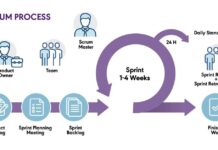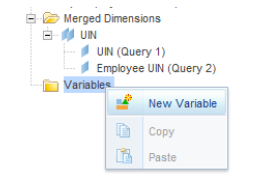Productivity measures how efficiently resources, such as time and labor, are used to produce goods and services. It is typically calculated as the ratio of output to input. For example, labor productivity is calculated as output per hour of labor.
Lists
The first productivity control you will ever employ is a list, which is the basic building block of productivity. It would be best if you calmed your internal chatter by getting the list out of your head and starting a list of to-dos. Free up your mind so it can focus on outputting creative work. Also, there is a feeling of success as you check things off, which are result-oriented outcomes.
Initially, you will put your brain dump list all over the place, which means you cannot jump around everywhere to get the to-do list together. When you do pull it together, the consolidated list proliferates and becomes unmanageable. The to-do list stops working, as you cannot have 150 items on it.
Separate your lists
There is a simple solution, create categories and subcategories of A and Bs for each category. A subcategory can be time, so the soonest due date is at the top. Avoid long lists. Break them down into a smaller list of 6 and finish them daily. A daily to-do list is better and must be executed on that day. Only take on a max of 6 tasks per day so you can get the dopamine rush of finishing the list each day.
Streamline further by thinking of your to-do list from the perspective of your body, mind, heart, and spirit. Knowing your current mode, you can pick tasks off your list when you are in that mode.
Energy Leakage
List Management
Increased productivity means to stop going over your list over and over but using that energy for creative work, not list-keeping.
These categories are not effective as you think: personal vs. professional, priorities A/B, 123, or H/M/L ranking. These classifications will keep you rearranging your list all day long, which is not productive.
Abandonment
Rearranging stuff will not make your to-do list better. It would be best if you weed out the things of no value. Listen to your body. If you only listen to your body and soul, it whispers to you as we speak. This is life itself. What can your body tell you about eliminating unnecessary or untimely items from your list?
Ignore if you cannot abandon
Reduce mind friction by keeping track of fewer items. Two types of list to filter out are “future” and “maybe someday” projects. You must get them out of your mind, but you want to set them aside.
- The FUTURE list – aka PARK STATUS is must do but In the future
- The MAYBE SOMEDAY list, aka INI STATUS, is the Dream list, they are ideas, and I could do it someday. I might never do it, but it is a brain dump out of my head.
Energy Boosts
Make a list before bed to let the super brain work on it. You get up with determination, move faster, and go to bed satisfactorily.
Outline tasks on Sunday.
Trim daily to-do lists down to a weekly list – You may get 80% done if you space your tasks over seven days. Identify your top three priorities for the week. Define time in your schedule to work on essential jobs such as writing a proposal. Realistically define your work list, and the time it will take to complete the tasks.
Batch your communication with a list of things you want to go over to get the best use of time
Personalize and Humanize
You can slim down your list further, only sharing the items that belong to the intended audience.
Keep project lists and beware of to-do lists.
Keep the project list from the tasks list so you can see the forest from the trees. A checklist and project list are great but not a to-do list. Long To-do lists are not worth the time, they are very demoralizing, but timing and clearing out the noise is a great approach.
Here are three list categories that work:
- DO NOW list: Urgent and Important task
- CALENDAR list: essential tasks that are not urgent
- Delivery
- Plans
- Reading
- Opportunities
- Relationships
- Recreation
- DELEGATE list: Urgent but not necessary
- delegate to OTHERS and follow up
- delegate to the CALENDAR and follow up
- TRASH list (Not Urgent or important; this can be your stop-doing list)
- Trash it
- Incubate it for reference data
- Part1 – List
- Part2 – Calendars
- Part3 – Priority
- Part4 – People











